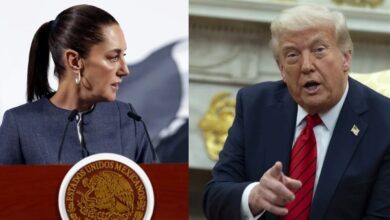The parties allied to the popular president of El Salvador sweep the legislative elections and leave him with little opposition .

The “millennial” president came to the presidency with his charisma, his successful mayoralty in San Salvador and his ease of handling social networks. Photo: TW-nayibbukele
LatinAmerican Post | Santiago Gómez Hernández
Listen to this article
Leer en español: El peligro del poder de Bukele
Few Central American politicians, even Latin American politicians, have aroused the interest of the international community like Nayib Bukele. The "millennial" president who got to the presidency with his charisma, his successful mayoralty in San Salvador, and his proficiency with social networks.
In the most recent legislative elections, Bukele took control of the body that held him back so much in government programs. His New Ideas party and his ally GANA won 61 of the 84 seats in the unicameral assembly. This means free way for his politics for the next 2 years of government.
Ya está en línea la entrevista con el presidente @nayibbukele
Una plática muy variada de cerca de una hora y media en la que tocamos todo tipo de temas. Las risas y las reflexiones no faltaron.
Pueden ir a verla ya al canal del podcast https://t.co/BShjiTsN9m pic.twitter.com/yq37RXdGcv
— Luisillo El Pillo (@LuisitoComunica) March 4, 2021
The president has even been so popular that he has become an international internet celebrity. Recently, he was the protagonist of a video with the famous YouTuber Luisito Comunica, who is the Latin influencer with the most followers on YouTube. Additionally, AuronPlay, a very popular Spanish streamer throughout the Spanish-speaking world, expressed his support for the "influencer" president.
— (@nayibbukele) March 3, 2021
His great results in internal and external politics, with special emphasis on crime reduction, were the keys to gaining popularity. To this is added a traditional political class worn out with corruption scandals like most of the countries and governments in the area (and all of Latin America in general).
Powerful and popular
However, all this power and popularity that Bukele amasses are also the main risks that the weak and looted Salvadoran democracy will face. The politician of Arab-Palestinian descent is not the only Latin caudillo who, with popular support and democratic elections, establishes himself in power and ends up as a dictator.
We have seen this with Hugo Chávez, Daniel Ortega, Nicolás Maduro, Alberto Fujimori, among many others. For now, Bukele will only be able to run for re-election 2 terms after his presidency (10 years later).
Furthermore, he has already shown signs of little interest in dialogue and accepting dissident positions. For example, in 2020 he stormed Congress with the military to gain the support of lawmakers for an increase in military spending.
Hace un año El intento de golpe de estado de Bukele alertó al mundo sobre el sentido anti democrático del gobernante salvadoreño. La militarización de la Asamblea fue un acto claro de Terrorismo de Estado y de autoritarismo. #VotaBucaro #Casilla15Parlacen pic.twitter.com/CuT9r6UIzN
— Leonel Bucaro (@BucaroLeonel) February 9, 2021
The BBC had already warned that the Bukele government has implemented a policy of 0 tolerance against gang violence , which has severely affected one of the most vulnerable populations in the country: prisoners. According to the British media, "many incarcerated gang members are not allowed visits or access to telephones, in addition to being confined to their cells 24 hours a day, every day of the week."
¿La @SalaCnalSV delega al procurador inconstitucional para que tutele la cuarentena y trata de quitarnos todas las facultades para hacerla cumplir?
El chiste se cuenta solo.
NINGUNA resolución está por encima del derecho constitucional a la vida y salud del pueblo salvadoreño.
— (@nayibbukele) April 16, 2020
José Manuel Vivanco, representative of Human Right Watch to Latin America, warned a year ago of the measures that the persistent Salvadoran was taking to combat the contagion of the Coronavirus. Among the measures, the arbitrary detentions that the Supreme Court itself had criticized and rejected were noted.
.@nayibbukele ha impuesto reglas draconianas para enfrentar la Covid-19 en El Salvador. RESULTADO: cientos de detenciones arbitrarias, mayor riesgo de contagio y rompimiento del estado de derecho. Lea este informe sobre los abusos cometidos por Bukelehttps://t.co/OWhJteQMxc
— José Miguel Vivanco (@JMVivancoHRW) April 15, 2020
It has also become commonplace for him to use his Twitter to scold or fire politicians. From this social network, he fires officials and attacks the opposition or traditional politicians, whom he classifies as corrupt, creating empathy with the Salvadoran population who (like Latinos in general) are tired of the traditional corruption scandals linked to the usual politicians. .
Se le ordena al Ministro de Seguridad @RogelioRivasSS, que remueva de su cargo como Director de Emisión de Pasaportes, al nieto del ex Presidente Sánchez Cerén.
Posteriormente contraté a alguien con credenciales para asumir el cargo de la mejor manera o promueva un subalterno.
— (@nayibbukele) June 4, 2019
It is precisely this way of responding and acting on social networks, unorthodox and that scares many analysts, what raises the most support within a young population, who use these media on a daily basis and who respond positively to disruptive discourses such as Bukele's, which are not very politically correct.
No one is able to deny his results. But, several of them seem to be made up, even with questionable alliances. After the country registered 1,547 murders, according to official figures, a media investigation revealed that this was possibly due to an alliance between the president and leaders of the Mara Salvatrucha (MS-13).
You may also be interested: How will the absence of opposition influence Nayib Bukele's politics?
Now, with 61 of 84 deputies, the pro-government forces can approve almost any initiative that the president has. This refers to bills, approval of budgets, the election of magistrates of the judiciary, and constitutional reforms.
Bukele now has popular support, a majority in congress and the possibility of reforming the constitution and electing magistrates. This process is similar to the one experienced in Chavista Venezuela that he has criticized so much. Support from the international community will be necessary to be able to identify procedures that threaten the poor balance of powers with which the country remains.
The future is not written, and only Bukele will know if the full power that he now possesses will allow him to promote great changes in this country, respecting the constitution, the separation of powers and his period of Government, or on the contrary, he will have a future similar to many other Latin American caudillos.





